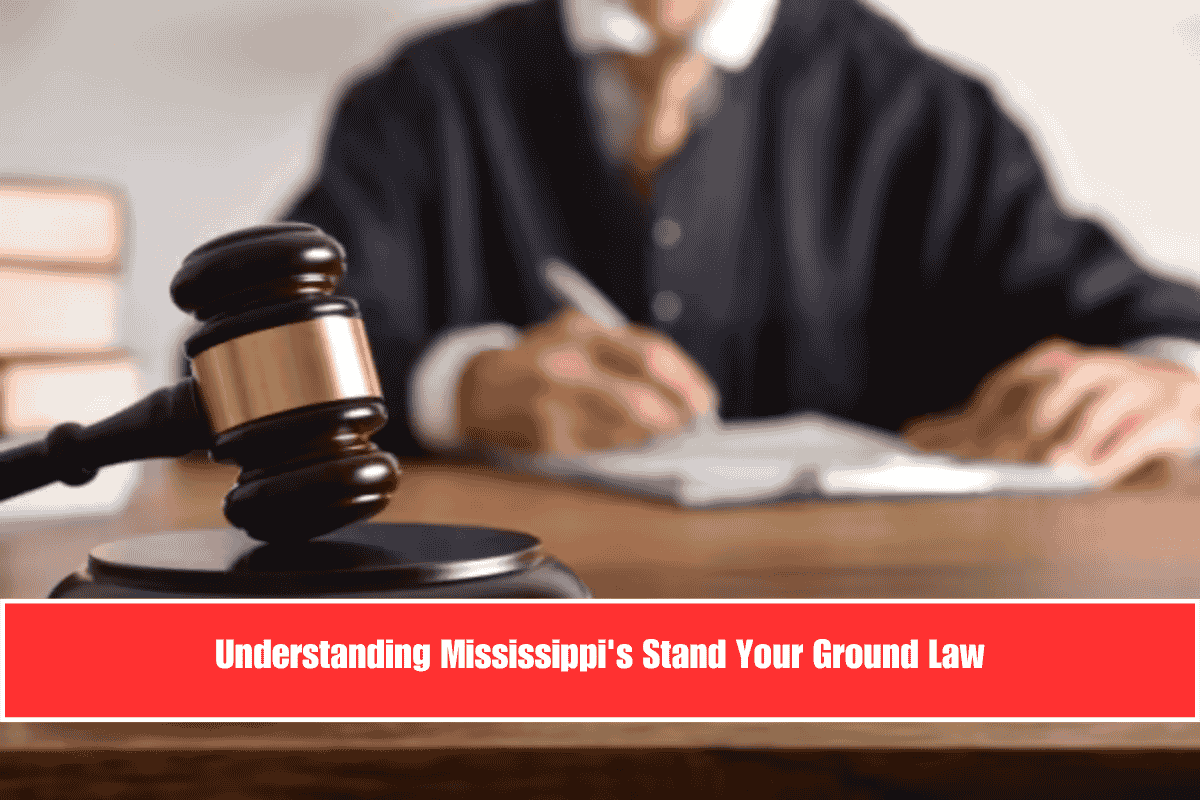Mississippi is a “stand your ground” state, meaning that individuals have no duty to retreat before using deadly force in self-defense, as long as they are not the initial aggressor and are in a place where they have a legal right to be. This law applies both in public spaces and, under the related “Castle Doctrine,” in private places such as homes, vehicles, and businesses.
Key Provisions
- No Duty to Retreat: If you reasonably believe you are facing imminent death or serious bodily harm, you may use deadly force without first trying to escape or retreat, provided you are not the person who started the conflict and are not engaged in illegal activity at the time.
- Reasonable Belief Required: The law requires that you must have a reasonable belief that the use of force is necessary to prevent imminent harm to yourself or others.
- Not the Aggressor: The protection does not apply if you are the initial aggressor or if you provoke the confrontation.
- Excessive Force Not Permitted: You cannot use more force than is reasonably necessary under the circumstances. Deadly force is only justified if you believe it is necessary to prevent death or great bodily harm.
- Presumption of Fear: The law generally presumes you have a reasonable fear of imminent harm if someone unlawfully and forcibly enters your home, vehicle, or business.
- Limitations: If the threat retreats or is no longer imminent, your justification for using force ends.
Castle Doctrine vs. Stand Your Ground
| Feature | Castle Doctrine | Stand Your Ground |
|---|---|---|
| Location | Home, vehicle, business (private property) | Any place you have a legal right to be |
| Duty to Retreat | No | No |
| Presumption of Threat | Yes, if unlawful entry | No automatic presumption in public |
| Applies to | Intruders on property | Threats in public or private spaces |
Legal Consequences
- Investigation: Any use of deadly force will be thoroughly investigated by law enforcement to determine whether the use of force was justified under the law.
- Potential Charges: If your claim of self-defense does not meet the legal standards, you may face criminal charges such as aggravated assault, manslaughter, or murder.
- Rebuttable Defense: Even if you invoke Stand Your Ground or Castle Doctrine, prosecutors can challenge your claim if evidence shows you were not in reasonable fear or used excessive force.
Mississippi’s Stand Your Ground law allows individuals to use deadly force in self-defense without a duty to retreat, as long as they are not the aggressor, are lawfully present, and reasonably believe such force is necessary to prevent imminent death or serious bodily harm. The law is designed to protect those defending themselves or others, but it does not grant blanket immunity—each case is subject to legal scrutiny to ensure the force used was reasonable and justified.
Sources
[1] https://giffords.org/lawcenter/state-laws/stand-your-ground-in-mississippi/
[2] https://www.msdeltalaw.com/blog/2021/november/what-is-considered-self-defense-in-mississippi-/
[3] https://hpattorney.net/what-is-the-castle-doctrine-in-mississippi/
[4] https://en.wikipedia.org/wiki/Stand-your-ground_law
[5] https://www.criminalattorneyhernando.com/blog/2024/07/legal-consequences-of-self-defense-with-a-firearm-in-mississippi/
















Leave a Reply